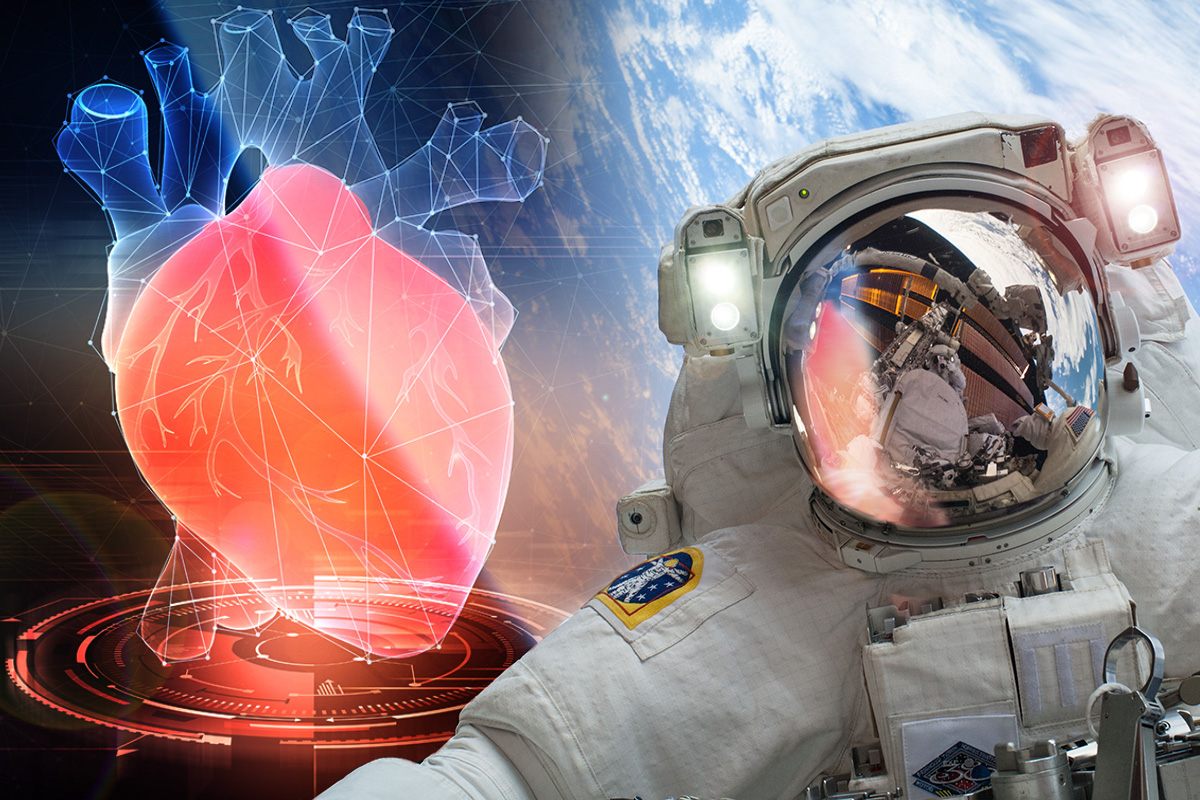Maybe even Neil Tyson did not know when he said: “The Universe is under to no obligation to make sense to you”.
When the Space couldn’t amaze us more with its weird theories like Theory of Relativity, Of Space-Time being a superfluous fluid with zero friction or the Ghost Condensate, Scientists have revealed that spending very long time periods in space can actually shrink one’s heart.
This effect is akin to the extreme endurance swimming, both removing the loads on Heart imposed by Gravity.
Study has been published in the journal Circulation, led by Dr. Benjamin Levine University of Texas Southwestern Medical Center. This revelation was made while comparing the impacts of astronaut Scott Kelly’s year in space with a marathon swim by athlete Benoît Lecomte.

He explains: “One of the things we’ve learned over many years of study, is that the heart is remarkably plastic. So, the heart adapts to the load that’s placed on it. In spaceflight, one of the things that happens, is you no longer have to pump blood uphill, because you’re not pumping against gravity”.
Experiment and the conditions:
Scott Kelly was made to spend 340 days aboard the International Space Station (ISS) in order to allow the scientists to study effects of long-duration flights on the human body.
In the same manner, Benoît Lecomte swam across the Pacific Ocean, swathing over 2,821km over 159 days, eventually abandoning the attempt. He has previously crossed the Atlantic.
Therefore, he swam an average of 5.8 hours per day, slept for around eight hours each night, thereby spending between 9 to 17 hours each day in a prone state or horizontal state. This can possibly change the loads on the Heart.
“Now you take away the head-to-foot gradient and then you put the person in the water, so you adjust that gradient too. It’s just about like being in space,” said Prof Levine.
In both acts, the blood could not be pumped unphill causing the heart to lose mass significantly.
Don’t lose Heart:
The researcher presented the findings: “When we look at the left ventricle [of the heart] we see about a 20-25% loss in total mass over the four or five months that Mr. Lecomte was swimming,“.
“We saw specifically 19% and 27% of mass lost for Captain Kelly over the year.”

Why is the study important for us?
Since Heart atrophy is a consequence of long-driven journeys in space, this is of greater significance now. As NASA has planned to undertake expeditions to Mars or India’s Gaganyaan that intends to send Humans for significant time outside.
For such travels, Scientist anyhow undergo extensive and dedicated training to survive in space and maneuver in case of threats. Even an intense exercise regime is setup to prevent the muscle and bone wastage to Space travellers, that also occurs while being in orbit.
Even proper directed exercise wasn’t enough to counteract the changes to the heart in either case. This change is a part of Heart Adaptations in the absence of gravity, that is certainly not long term.
Risks to the Life-giving organ from space travel: what can possibly happen?
The chambers in heart known as the atria tend to expand in space because of changes in the way fluid passes through. This may lead to atrial fibrillation, causing the heart to beat fast and in an irregular manner, increasing the risk of a stroke.
If the above scenario is evaded, higher levels of radiation in space might accelerate the coronary heart disease. Although the astronauts are screened for atherosclerosis before space travel, but as age engulfs these Scientists in their middle ages, the condition deteriorates with ageing.
It will not be difficult to imagine how can suffering a heart attack in space become catastrophic to the mission and lethal to human life.
With man aiming to take his unceasing ambitions beyond this planet and to the dark unexplored space, it is expected that he will not look back and only move forward. But any undesirable change to human body in space can hamper his ambitions.
We may not be able to change such vulnerability but prevention is anyday better than cure.

